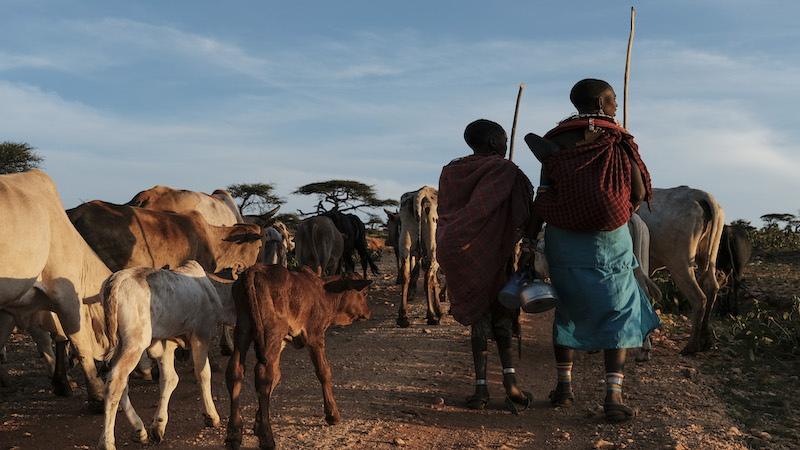Verra’s new CEO said that “faster does not equal to compromise on integrity” – but independent carbon market experts are sceptical
Verra, the world’s biggest certifier of carbon credits, plans to review projects faster than it has in the past despite letting a quarter of its workforce go after losing $9 million last year.
Introduced this week, Verra’s new “risk-based approach” uses algorithms and staff judgement to categorise carbon credit projects by how risky they are based on factors like size and complexity. Projects deemed high-risk are now checked more thoroughly than low-risk ones.
While Verra’s new CEO Mandy Rambharos said recently that “faster does not equal to compromise on integrity”, carbon market experts have raised concerns that the quality of verification could suffer and more bad projects could get the green light.
Verra is also implementing as “digitalisation” initiative, which it says will help “enhance transparency and efficiency, streamline processes and scale up its operations”.
Digitally-submitted documents about a project will be fed into a “built-in engine” that “performs all the necessary calculations”, including working out how much greenhouse gas will be kept out of the atmosphere as a result of the project’s activities, according to Verra.
Losses fuel cuts
Over the last few years, Verra has been repeatedly accused in academic studies and media reports of approving carbon offsets that exaggerate the climate benefits they bring by reducing or avoiding the release of planet-heating carbon dioxide and methane.
Its long-time CEO David Antonioli stepped down in March 2023 amid falling revenues – which Verra gets mostly from charging an issuance fee per credit from certified projects – and rising costs. The carbon credit registry made a loss of $9.3 million last year.
Rambharos, a former South African climate negotiator who joined Verra from the Environmental Defense Fund, told a webinar for partners last week that the job cuts had been a very “difficult decision” in a “gruelling week”.
Justin Wheler, who heads the program management team that runs Verra’s registry and is responsible for ensuring the quality of credits, told the webinar that his department had lost staff as “no department was spared from that”.
Indian coal giants pushed for lax pollution rules while ramping up production
In response to questions asking how projects could be processed faster with fewer staff, he said the new risk-based approach would “compensate for the reduction in staff capacity” as it “clearly identifies where high levels of scrutiny are needed and allows us to focus our resources in those areas”.
Wheler added that the criteria Verra uses to judge project risk would not be released, comparing that decision to police not telling the public where speed cameras are. But he said the size and complexity would be two of the factors guiding “review intensity”.
Past mistakes
There are a number of known cases of Verra approving carbon credit projects only to later place them under review after media reports or whistleblowers raised doubts over their integrity.
Last August, the carbon credit standard revoked 37 rice cultivation schemes after it had identified a string of “serious failures” during a 17-month review triggered by complaints over the production of credits in excess of actual emission reductions.
Other projects have been suspended by Verra after campaigners raised concerns about Indigenous peoples’ lack of consent for a project in Cambodia, and sexual abuse and harassment in a project in Kenya. Both activities were restarted after Verra had reviewed them.
Just last week, Verra cancelled 5 million credits generated from cleaner cookstoves after a former executive at the project developer – who was also a former member of Verra’s board – was accused of fraud by US law enforcement over the alleged falsification of project data. He denies all wrongdoing.
European Central Bank holds back plan to boost climate finance for Africa, Latam
Trishant Dev, carbon markets researcher at the Delhi-based Centre for Science and Environment, said Verra’s new risk-based approach “warrants careful consideration […] given recent instances of Verra placing projects under review after discrepancies are exposed publicly”.
Simon Counsell is an independent consultant and researcher who wrote a report criticising a Verra-approved carbon offset project in Kenya. He told Climate Home that given the criticism Verra has received, it is “surprising that they should think there are ‘low or medium risk’ new projects that warrant less scrutiny, especially when inadequate oversight is precisely what has led to Verra’s current financial situation”.
“‘Streamlining’ its processes might get new projects online quicker, and thus bring in more registry fees, but it won’t solve its credibility crisis,” he said, adding that Verra is branching out into “new and even more controversial areas” such as biodiversity and nature crediting. “It seems that ‘more’, rather than ‘better’, is still the organisation’s main watchword,” he said.
Joe Eisen, executive director of Rainforest Foundation UK, said it was difficult to see how the reforms “won’t further undermine the credibility of the system”.
“We have a situation where there are far more projects in the pipeline, less people to ensure the quality of the projects and greater commercial pressures to issue credits from them,” he added. “Not an ideal recipe for high-integrity forest protection.”
Carbon players’ support
A spokesperson for Verra pushed back against criticism, however, telling Climate Home the new approach acknowledges some of the different risk factors
Read More

